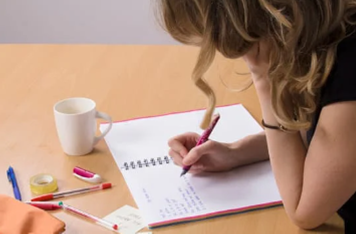EDUCATION PROGRAMS
The philosophy and values of the school are implemented through our curriculum and pedagogy. All learning programs are based on the Australian Curriculum.
Key Learning Areas:
- English
- Mathematics
- Science
- HAAS (Humanities, Social Science, History and Geography)
- Technology
- The Arts (Music, Visual Art, Drama and Media)
- Health and Physical Education
- Languages (French)
Our approach to teaching Mathematics and Spelling is articulated through our belief statements. These beliefs were jointly developed by the teaching staff at Hawker School.
Spelling Beliefs Statement:
- If at Hawker we believe spelling is best taught in context and when integrated with writing, then every day in our classrooms you will see individualised word lists, explicit instructions and individual goals.
- If at Hawker we believe spelling is best taught when integrated with writing and reading, then every day in our classrooms you will see conversations and spelling work throughout the literacy sessions.
- If at Hawker we believe spelling should be taught within a relevance of context and need, then every day in our classrooms you will see spelling taught explicitly in relation to subjects that are in focus, and using students' own writing.
- If at Hawker we believe that student’s invented spellings are a reflection of their developmental stage then every day in our classrooms you will see analysis of student writing differentiation.
- If at Hawker we believe that spelling is best taught integrated with writing then everyday in our classrooms you will see reference to writing books, contextual within other subject areas and reference to spelling in writing tasks.
- If at Hawker we believe spelling is best taught when integrated with writing, then every day in our classrooms you will see spelling focuses and goals embedded within writing tasks.
- If at Hawker we believe spelling is a developmental process, then every day in our classrooms you will see differentiated spelling lists.
- If at Hawker we believe all students can succeed, then every day in our classrooms you will see explicit spelling lessons.
- If at Hawker we believe spelling words should come from a student's own writing, then every day in our classrooms you will see formative assessment of written work identifying errors.

Mathematics Beliefs Statement:
- If at Hawker we believe all students can succeed, then every day in our classrooms you will see explicit and engaging mathematics lessons.
- If at Hawker we believe maths should be taught within a relevance of context and need, then every day in our classrooms you will see mathematics taught explicitly in relation to the world around us and including reference to relevant mathematical language.
- If at Hawker we believe mathematics is a developmental process, then every day in our classrooms you will see differentiated tasks and activities to meet students at their point of need.
- If at Hawker we believe real world maths is best taught when integrated with problem solving activities, then every day in our classrooms you will see opportunities for hands-on inquiry into maths.
- If at Hawker we believe students should have access to timely, effective feedback to develop their mathematical skills, then every day in our classrooms you will see a range of feedback strategies such as formative and summative assessment, robust mathematical conversations and opportunities for students to reflect on their work.
- If at Hawker we believe that students should be able to actively engage in maths then everyday in our classrooms you will see reference to and opportunities to explore the mathematical proficiencies of understanding, fluency, problem solving and reasoning.

- If at Hawker we believe that students should build a robust knowledge of adaptable and transferable mathematical concepts then everyday in our classrooms you will see explicit connections drawn between the ‘how’ and the ‘why’ of mathematics to develop the proficiency of understanding.
- If at Hawker we believe that students should be able to choose appropriate strategies, using these accurately, efficiently, appropriately, while recalling factual knowledge readily then everyday in our classrooms you will see opportunities for students to develop the proficiency of fluency.
- If at Hawker we believe that students should be able to apply existing strategies to seek solutions and communicate this process effectively then everyday in our classrooms you will see access to mathematical investigations and inquiries to develop the proficiency of problem solving.
- If at Hawker we believe that mathematical understandings, processes and products should be communicated with others then everyday in our classrooms you will see explicit modelling and opportunities to practise analysing, proving, evaluating, explaining, inferring, justifying and generalising to develop the proficiency of reasoning.
We have preferred resources which we use across the school to deliver the Australian curriculum. These include:
- The Reading Book - Sheena Cameron (Reading)
- The Writing Book - Sheena Cameron (Writing)
 (Mathematics)
(Mathematics)- Primary Connections (Science)
Teaching and Learning at Hawker School reflects the core principles from the ACT Public Schools Pedagogical Framework Guide.
These are:
Planning for student-centred learning
High Expectations
Alignment of curriculum, pedagogy and assessment
Evidence-based decision making
Targeted, explicit and scaffolded instruction
Safe, supportive, connected and inclusive learning environments
A school based pedagogical framework has been developed with staff to ensure consistency of practice and supports our staff to know what teaching and learning looks like at Hawker School.
Extension and Enrichment:
Hawker School offers extension and enrichment opportunities depending on student need. These opportunities include Maths extension and enrichment lessons with specialist staff, reading and writing extension groups. Students who are involved in these programs are identified by classroom teachers as well as the student support team using school based and external data sources. Maths extension students work on preparing for the Australian Maths Trust competition held in Term 3 of each year. Students also have the opportunity to participate in the ICAS competitions in Maths and English. These are typically held in Term 3 and are held at the school.
Specialist Programs:
At Hawker School students participate in specialised subjects for one 45 minute session per week. Each year level has a specific day for their specialist subjects and from 11:00 to 3:00 rotate through these lessons. These subjects include:
Music (Kindergarten to Year 6)
French (Kindergarten to Year 6)
Mental Health and Wellbeing (Kindergarten to Year 6)
PE (Kindergarten, Year 1, Year 3, Years 5 and 6)
Technology (Years 2 and 4)
Student Support
Our student support team consists of an Executive teacher, Learning support specialist, Mental Health and Wellbeing Teacher and School Psychologist. The team meets weekly and leads the management and support of student academic, social and behavioural needs. Classroom teachers can make referrals to the student support team for specific student concerns.
At Hawker School every year level has an additional teacher during morning sessions and at other key times throughout the day to support a differentiated program. The additional teachers take small groups of students who require support either intervention or extension. They plan with classroom teachers and deliver lessons targeted to the student’s point of need.
School Psychologist
Hawker School has a school psychologist who works part-time to assist children and families with any issues and to administer diagnostic tests when required. Students and families may initiate a meeting with the school psychologist at any time by contacting the front office.
